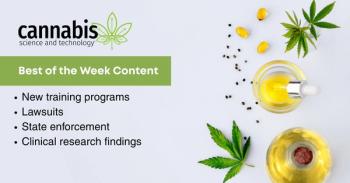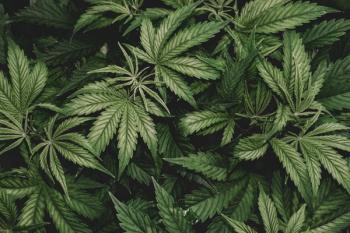
Ask the Experts: Cannabis Testing/Analytical Methods, Part IV: If You Were Teaching a Class on Cannabis Testing, What Is the Most Important Thing that Newcomers to the Field Would Need to Learn?

Bob Clifford, Shimadzu Scientific Instruments; Derek Laine, Trace Analytics; Sandy Mangan, SPEX SamplePrep LLC; Justin Steimling, Restek Corporation; and Katherine Stenerson, MilliporeSigma discuss the most important thing newcomers to the field need to learn.
Leading scientists and researchers from the cannabis industry-Bob Clifford, Shimadzu Scientific Instruments; Derek Laine, Trace Analytics; Sandy Mangan, SPEX SamplePrep LLC; Justin Steimling, Restek Corporation; and Katherine Stenerson, MilliporeSigma-participate in this round-table discussion series. This month they discuss the most important thing newcomers to the field need to learn.
If you were teaching a class on cannabis testing, what is the most important thing that newcomers to the field would need to learn?Bob Clifford: In a cannabis laboratory, many people are “experts” in one area. Ideally one should learn the big picture of what is happening. A great place to start would be at the
Derek Laine: The scientific exploration of cannabis is a new frontier and for that reason it is very exciting. Other industries may already have literature or developed methods available where in the cannabis industry you are at the forefront of developing new testing protocols. The regulatory portion of the industry is in its infancy as well and rule changes happen frequently. This is a challenge for newcomers and veterans alike and we must learn how to develop new methods with little support from the literature while also adapting to regulatory rule changes.
Sandy Mangan: Cannabis is one of the most chemically complex plants on the planet and should be treated as such. The very first step is of course sample preparation, garbage in = garbage out as the saying goes. It is hands down the most important step. Like I said before (2-4), sloppy sample prep only leads to inaccurate results in the end.
Justin Steimling: I can speak personally from my own experience as a newcomer having transitioned from predominately life science applications to cannabis applications that there are a new set of challenges that are encountered when working with cannabis compared to blood, plasma, urine, and so on. For instance, it’s very easy to obtain a matrix blank for most life science applications, but this can almost be impossible when evaluating cannabis and cannabis products. Additionally, cannabis is not only difficult to analyze due to the quantity and variety of the matrices available, but the flower itself can be challenging to analyze since it contains high levels of cannabinoids, terpenes, fatty acids, sugars, flavonoids, and pigments. As such, both sample preparation and analysis strategies need to be adjusted accordingly in order to detect low levels of contaminants such as mycotoxins and pesticides.
Katherine Stenerson: I would start with proper method validation. Lab results are a product and using a properly validated method ensures that you are supplying your client with a high quality product. Method validation not only ensures the method itself is producing accurate results, it can also be used as a training tool for laboratory personnel. The process will help chemists and technicians become familiar with the mechanics of the method, handling the data properly, and method troubleshooting (that is, what to investigate first when performance requirements are not met.)
Click here to read
References:
https://www.cannabisscienceconference.com/ http://www.cannabissciencetech.com/analytical-methods/ask-experts-cannabis-testinganalytical-methods-part-i-what-biggest-challenge-facing-cannabis?eid=238127740&bid=2361159 http://www.cannabissciencetech.com/analytical-methods/ask-experts-cannabis-testinganalytical-methods-part-ii-which-technique-or-method-do-you-think-most http://www.cannabissciencetech.com/analytical-methods/ask-experts-cannabis-testinganalytical-methods-part-iii-what-best-piece-advice-you-can-offer-people
Newsletter
Unlock the latest breakthroughs in cannabis science—subscribe now to get expert insights, research, and industry updates delivered to your inbox.


